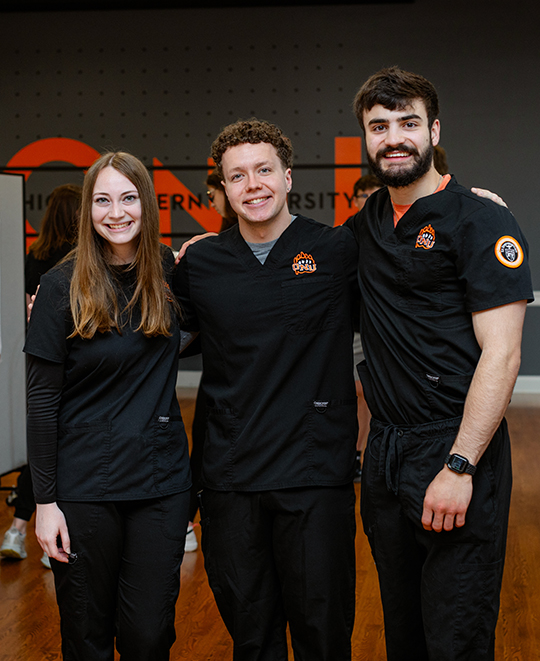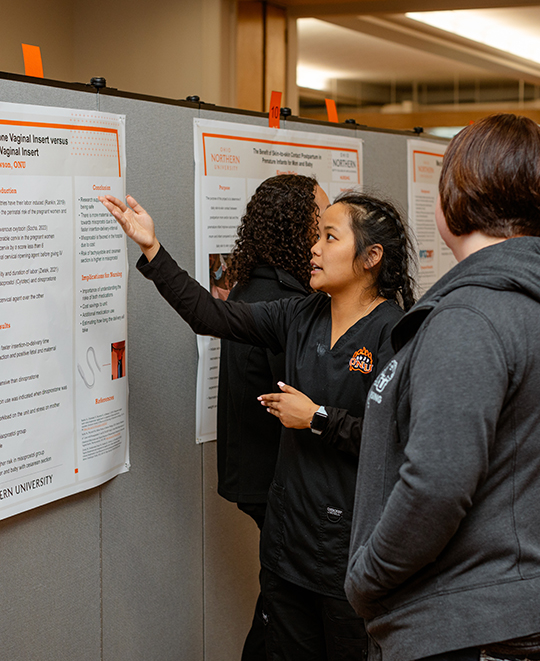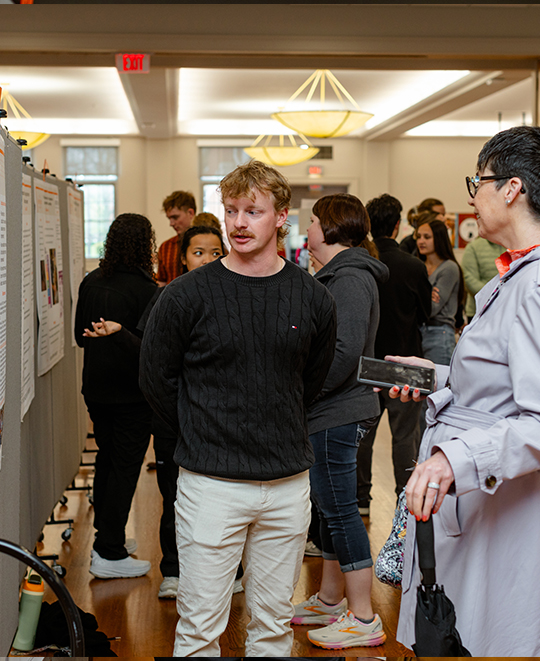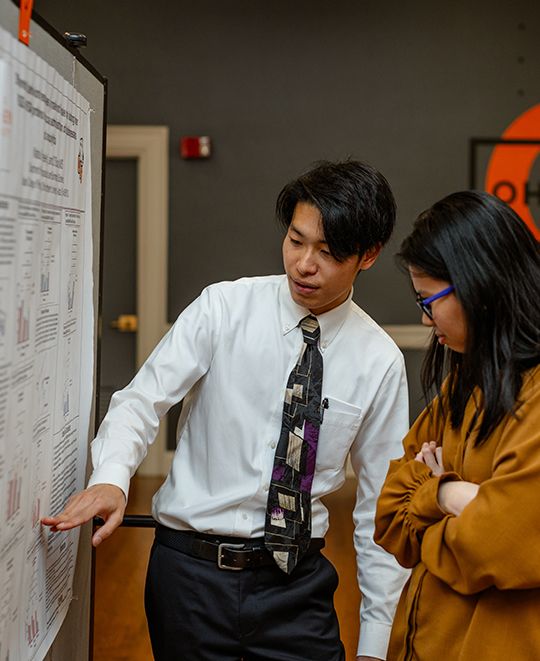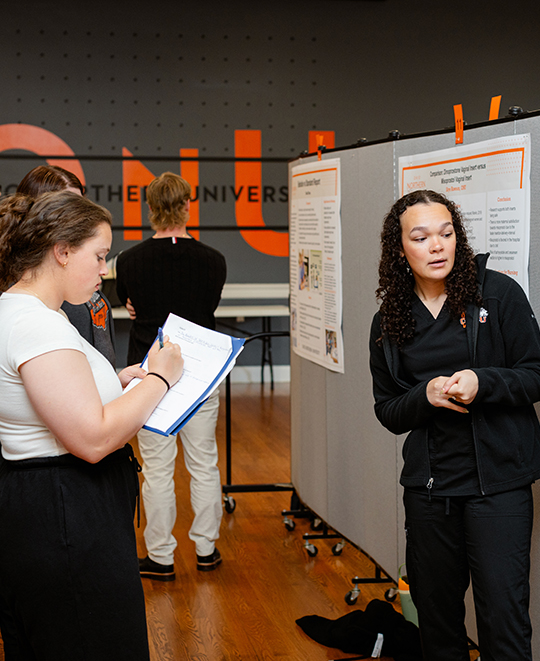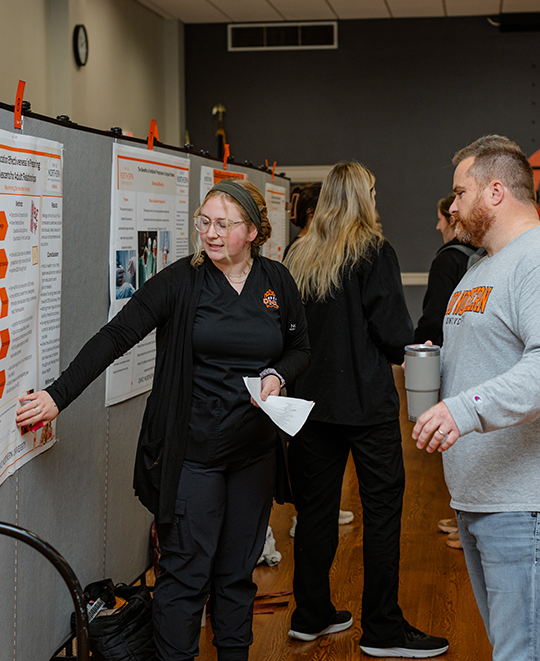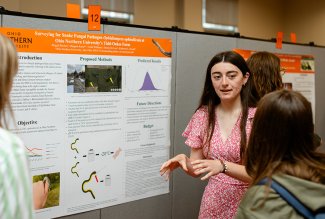
Through faculty-guided research, which takes place in nearly every discipline, Ohio Northern University undergraduates deepen their subject knowledge, build professional skills, and stand out from the competition.
ONU students showcased more than 100 undergraduate research projects during the Student Research Colloquium on April 16 and 19. Podium presentations took place on Tuesday and poster presentations on Friday. Topics ranged from glowing insects in the cloud forest of Ecuador to growing populism in Hungary and Poland.
Several students participating in the Colloquium had previously presented their research findings at regional and national professional conferences.
“Research makes the connection between knowledge and experience,” said Brenda Hoyt-Brackman, assistant dean for student success in the College of Arts & Sciences. “It gives students an opportunity to delve into subjects they are passionate about.”
When students collaborate with faculty across disciplines and engage in stimulating discussions with the larger academic community, it leads to the development of skills important for students’ long-term personal and professional success,” she added.
Faculty-student mentoring is a hallmark of an ONU education, fostered by small class sizes and dedicated professors. Most ONU undergraduates who embark on a research study do so because a professor took note of their interests and steered them in a direction relevant to their future. Additionally, many academic programs require a Senior Capstone project, which can involve individual or team-based research.
“Students do need a level of knowledge of the discipline through relevant coursework before they can consider research,” explained Hoyt-Brackman.
For political science major Caleb Clayton, the catalyst for his research study was the Russian invasion of Ukraine.
“I wanted to analyze how recent political trends in other nations in central and eastern Europe were changing in response to their current political climate and an emerging major conflict,” he said.
Rob Alexander, Ph.D., professor of political science and director of ONU’s Institute for Civic and Public Policy, guided Caleb throughout his project.
Using process tracing methods, data gathered from The Freedom House, and other models and methods, Caleb investigated how changes in the government infrastructure in Poland and Hungary, specifically in the courts and legislature, enabled the ruling parties to make changes that favored their organization, limited opportunities for opposition parties, and potentially hindered the political freedoms of individuals.
Caleb, who is also minoring in pre-law, creative writing, and philosophy, said his knowledge and skills grew exponentially throughout the project.
“I developed reading comprehension, data gathering, time management, and communication skills,” he said. “I think these skills will be greatly beneficial in the future.”
Hoyt-Brackman added that ONU’s students are more competitive because of the extensive amount of undergraduate research taking place at the institution.
“Our students are always competing with students from other schools for internships, Summer Research Experiences for Undergraduates (REUs), scholarships, graduate and professional school admission, and jobs,” she said. “The Student Research Colloquium is one way that ONU enables our students to become successful competitors.”
